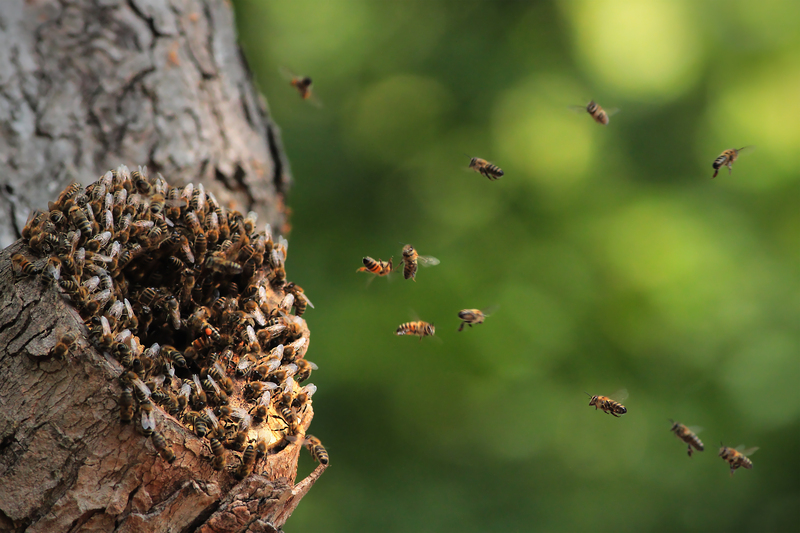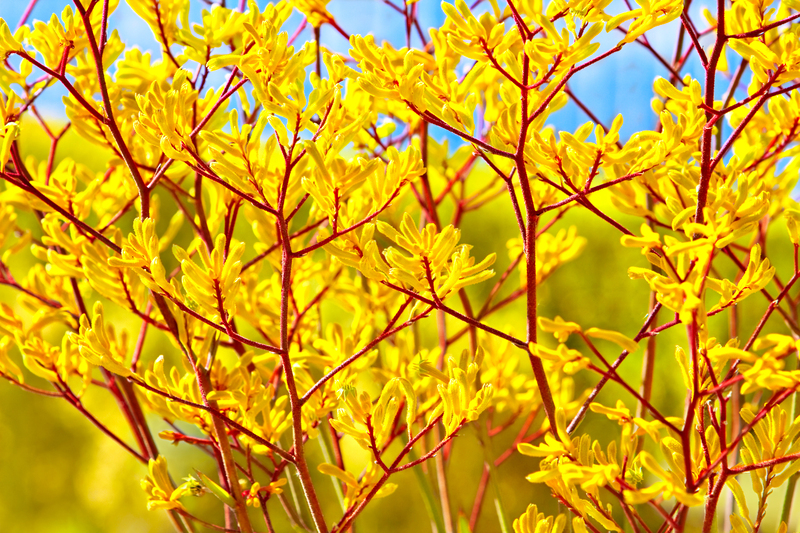Eco-Friendly Herb Gardening Practices
Posted on 30/08/2025

Eco-Friendly Herb Gardening Practices: Sustainable Tips for Green Thumbs
Whether you're a seasoned gardener or starting your first kitchen windowsill planter, eco-friendly herb gardening practices offer a sustainable, rewarding way to grow your own flavors while helping the planet. By adopting greener methods, you minimize your ecological footprint, conserve resources, and create a healthier environment for your herbs--all while reaping delicious, fresh harvests right at home.
Why Choose Sustainable Herb Gardening?
Eco-friendly herb gardening goes beyond simply planting and watering. It encompasses a holistic approach that nurtures the entire ecosystem surrounding your herbs. Here are a few key reasons to embrace sustainable practices:
- Reduces Chemical Use: Avoids synthetic pesticides and fertilizers, benefiting biodiversity and soil health.
- Supports Local Wildlife: Encourages pollinators and beneficial insects, enhancing garden health naturally.
- Saves Water and Resources: Practices such as mulching and rainwater harvesting help conserve precious resources.
- Yields Healthier Harvests: Organically grown herbs are often more flavorful and nutritious.
- Minimizes Waste: Composting kitchen scraps and garden trimmings turns waste into valuable fertilizer.
1. Choosing the Right Location and Herb Varieties
Starting your eco-friendly herb garden begins with thoughtful planning. Select a sunny spot that receives at least 6 to 8 hours of sunlight daily. Consider the local climate and choose herbs adapted to your region. Native and drought-tolerant herbs like thyme, rosemary, and oregano are often low-maintenance and require fewer resources.
- Match Herbs to Your Microclimate: Basil thrives in warm, sunny areas, while cilantro prefers cooler temperatures.
- Diversify Your Plantings: Growing a variety of herbs increases resilience against pests and diseases.
- Companion Planting: Planting compatible herbs together, such as basil and parsley, can boost growth and ward off pests.
2. Soil Health: The Foundation of Sustainable Gardening
The key to sustainable herb gardening is rich, living soil. Healthy soil supports strong root systems, improves water retention, and houses beneficial microbes. Here's how to nurture the earth beneath your herbs:
- Compost Regularly: Add organic compost made from kitchen scraps, garden trimmings, and fallen leaves to enrich soil with nutrients.
- Avoid Synthetic Fertilizers: Chemical fertilizers can pollute groundwater and harm beneficial soil life.
- Incorporate Mulch: A layer of organic mulch moderates soil temperature, conserves moisture, and suppresses weeds.
- Practice No-Till Gardening: Limit digging and turning of the soil to protect soil structure and foster microbial health.
3. Water Conservation Techniques for Herbs
Eco-conscious herb gardening includes responsible water management. Excessive water use is a common environmental issue, but herbs usually require less water than vegetables when properly cared for.
- Use Drip Irrigation: These systems deliver water directly to roots, reducing evaporation and waste.
- Harvest Rainwater: Set up a rain barrel to collect water from your roof to use on your herbs.
- Mulch Generously: Helps retain soil moisture, meaning less frequent watering.
- Water in the Early Morning: Reduces loss to evaporation and helps prevent fungal diseases.
- Choose Drought-Resistant Herbs: Sage, rosemary, and lavender thrive with minimal watering.
Eco-Friendly Pest and Disease Control Methods
One of the hallmarks of a sustainable herb garden is a balanced ecosystem. Avoid harmful chemicals by using natural pest control methods that are gentle on the environment.
- Encourage Beneficial Insects: Ladybugs, lacewings, and hoverflies eat pests like aphids and mites.
- Plant Pest-Repelling Herbs: Basil, mint, and chives done double-duty as aromatic deterrents for common garden pests.
- Companion Planting: Pair herbs with vegetables to create natural barriers against insects and fungal issues.
- Use Homemade Sprays: Solutions of neem oil, garlic, or mild soap can be effective against pests without harming beneficial creatures.
- Maintain Garden Hygiene: Remove diseased plants quickly and keep the area tidy to reduce pest habitats.
4. Sustainable Fertilizing: Feeding Herbs the Eco-Friendly Way
Feeding your herbs organically is essential for a flourishing, sustainable garden. Instead of relying on synthetic fertilizers, nourish your plants with natural inputs:
- Compost Tea: Soak mature compost in water for a natural liquid fertilizer that boosts soil life.
- Organic Amendments: Add well-rotted manure, worm castings, or seaweed extracts for balanced nutrition.
- Crop Rotation and Diversity: Rotate herb plantings each season to prevent soil depletion and break pest cycles.
- Leave Some Debris: Allowing some leaves and plant material to decompose in place adds organic matter back into the soil.
Eco-Friendly Seed and Plant Sourcing
Support environmental and community health with the purchasing choices you make:
- Opt for Organic Seeds: Seeds grown without synthetic chemicals have a lighter ecological footprint.
- Save and Swap Seeds: Harvesting and saving seeds from your herbs promotes biodiversity and self-sufficiency.
- Support Local Nurseries: Reduce emissions from transportation and encourage regional plant varieties.
- Avoid Invasive Species: Research your area's native herbs to avoid introducing problematic non-native plants.
5. Eco-Conscious Containers and Garden Structures
Many herb gardeners use containers. To keep your herb-growing journey green, follow these sustainable practices:
- Repurpose Items: Old buckets, cans, or wooden crates can be turned into charming planters.
- Avoid Plastics: Choose biodegradable pots made from coconut fiber, clay, or sustainably harvested wood.
- DIY Vertical Gardens: Use upcycled pallets or shoe organizers to save space and materials.
Integrated Pollinator Support
Many herbs, such as lavender, thyme, and borage, attract bees, butterflies, and other pollinators essential for a thriving ecosystem. Enhance pollinator habitats with these tips:
- Provide Continuous Blooms: Plant a variety of herbs that flower at different times for season-long nectar and pollen food sources.
- Avoid Pesticides: Even organic sprays can sometimes harm pollinators. Use them sparingly and never on flowering plants.
- Create Water Sources: A shallow dish with pebbles and water gives pollinators a safe place to drink.
6. Zero-Waste Harvesting and Preservation
Eco-friendly herb gardeners use every part of their harvest and minimize waste throughout the growing and cooking process.
- Harvest Selectively: Pick only what you need, leaving the plants to continue growing and producing.
- Use Crushed Stems and Leaves: Add to homemade stocks, teas, or compost for full use of each plant.
- Dry and Store: Air-dry or oven-dry herbs for off-season use instead of buying packaged, store-bought products.
- Share the Surplus: Gift extra herbs to neighbors or local food programs to prevent waste.
Connecting with the Community
One of the lesser-known benefits of sustainable herb gardening is the chance to build community connections. Community gardens, seed swaps, and local gardening clubs foster sharing of eco-friendly gardening practices and resources. These connections promote biodiversity, reduce isolation, and help spread sustainable habits throughout your area.

Conclusion: Growing a Greener Future with Sustainable Herb Gardening
Adopting eco-friendly and sustainable herb gardening techniques isn't just about enjoying fresh, chemical-free flavors--it's a way to nurture the planet, support local wildlife, and spread environmental awareness. By following these green tips--from choosing the right herbs and soils, to saving water and supporting pollinators--you can cultivate a flourishing, beautiful herb garden that brings health and harmony to your home and community. Start small, experiment, and share your knowledge so the positive impact on the earth grows season after season.
Your Eco-Friendly Herb Garden Starts Today!
Take your herb gardening to the next (greener) level by integrating these eco-conscious habits into your daily routine. Every plant, every drop of water saved, and every organic harvest helps create a sustainable legacy for future generations of gardeners.
- Start composting today--every bit of organic waste helps!
- Switch to natural pest management for healthier, stronger plants.
- Support your local ecosystem by planting pollinator-friendly herbs.
Happy herb gardening--and here's to a more sustainable, flavorful future!

